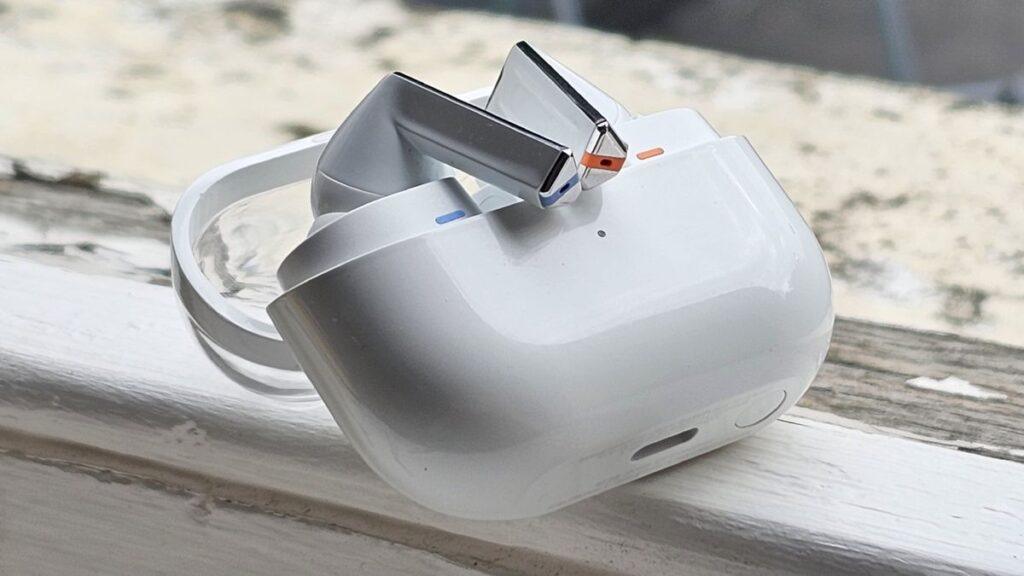- Eclipsa Audio Coming to Android Open Source Software This Year
- It will also be available in TV and sound bar models from “multiple” manufacturers.
- But there is no work on compatibility with headphones connected to Android
Recently, Samsung and Google announced a new spatial audio technology called Eclipsa Audio, which is a direct (and free) rival to Dolby Atmos and DTS:X. Compatibility will arrive in 2025 for Samsung sound bars and televisions, as well as Google Chrome and YouTube later this year.
And now Google has confirmed that Eclipsa Audio will also come to Android, in an upcoming AOSP (Android Open Source Project) version (via Sammobile). This is really the biggest news for Eclipsa so far, because it is the update that will bring it to the largest number of devices. There’s no certainty as to when AOSP updates will hit individual devices, given the nature of Android and the different versions various companies use, but we can probably assume that Samsung will jump on this as soon as possible, so that’s one batch of telephones at least.
However, that’s actually only half of what we need to hear, because great 3D spatial audio on phones depends on being supported by the best headphones and earbuds. Spatial audio has been a big hit on Apple devices thanks to Dolby Atmos with head tracking, which makes you feel like you’re sitting in a movie theater. This has been supported on AirPods Pro for years and is available on all current models of the best AirPods.
Dolby Atmos spatial audio is also supported on other headphone options, including the Sonos Ace and the fantastic Technics EAH-AZ100. Perhaps most notable here is that it is compatible with the best Samsung phones and the Samsung Galaxy Buds 3 Pro headphones.
But there hasn’t been any announcement of support for Eclipsa Audio with head tracking on headphones or earphones yet, and without that, its support on Android feels a little empty – it’s only half the battle.
Now, there’s a good chance that will change at the Samsung Unpacked event on January 22, when Samsung will almost certainly reveal the Samsung Galaxy S25, and I suspect it will announce support for Eclipsa Audio as part of its features, and probably an update of the Buds 3 Pro to accommodate this. (You can follow all the announcements on our Samsung Unpacked 2025 live blog as they happen.)
But still, Samsung support alone won’t be enough to build momentum for Eclipsa – it really needs to bring in the best headphone makers for all budgets to make it feel like a must-have feature. Everything from 1More to Bose, from Nothing to Sony… some of them are probably more realistic than others.
And even then, Samsung and Google really need to bring in other services too…
What are you going to see?
YouTube isn’t really enough for a spatial audio format to take off, especially since very little was recorded with any kind of spatial or surround audio in mind.
Google and Samsung need to get the best streaming services and Film and television studios on board, especially Netflix, Prime Video and Disney Plus. But that’s easier said than done: They all already support Dolby Atmos (and I understand they don’t pay to use it, so they have little incentive to switch), and remaking shows and movies to support Eclipsa would be an added expense. and a lot of time, although Google says it will make it as easy as possible with new tools.
Will they feel any need to do so? It’s all a bit like the chicken and the egg. Why would streaming services support the format if very few devices support it? Why would device makers go out of their way to add it if no streaming service offers it?
Samsung and Google can’t force streaming services to do anything, but they can add it to the Galaxy Buds and Pixel Buds Pro 2. Google also says Eclipsa support will come to “TVs and soundbars from multiple manufacturers later in the year.” 2025″. .
However, there is still no information on this and until there is a real push focused on as We will hear Eclipsa on Android and who will admit it, it will have a slow launch.




